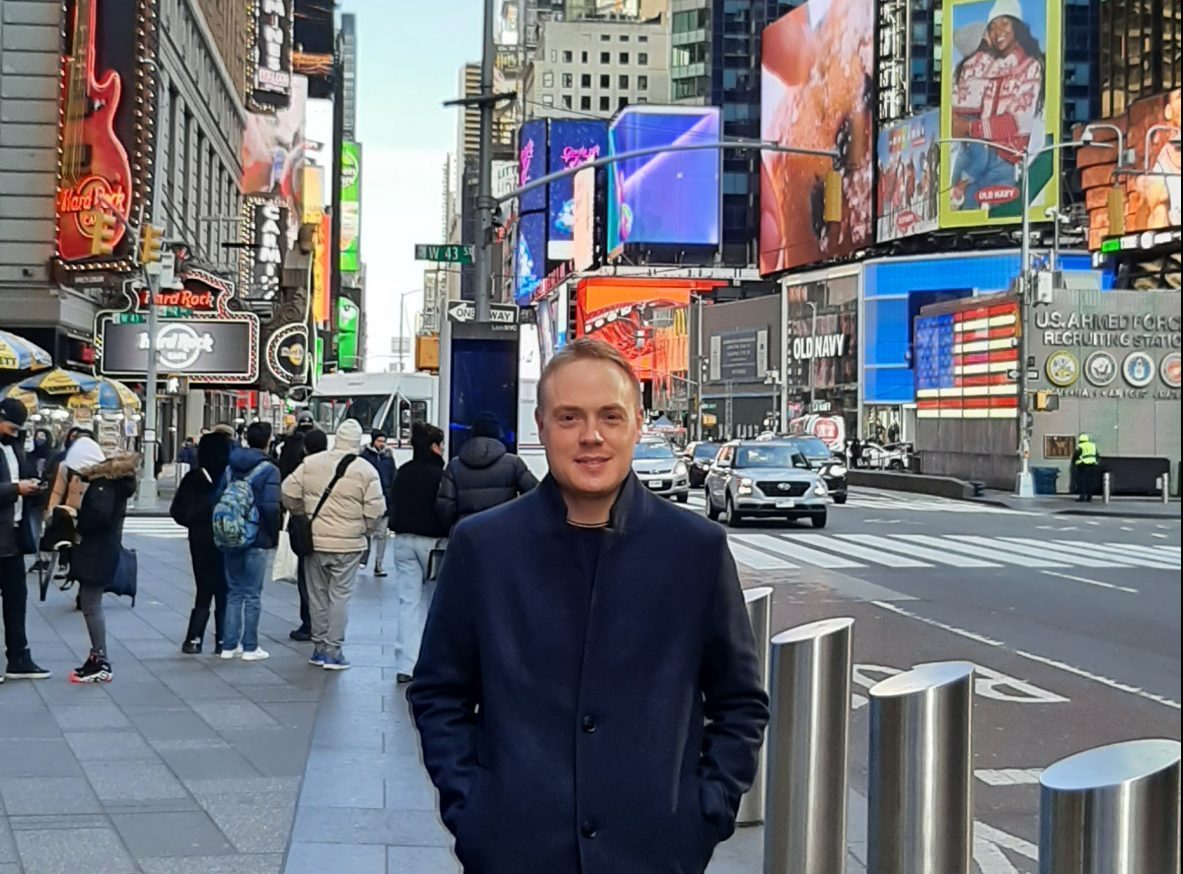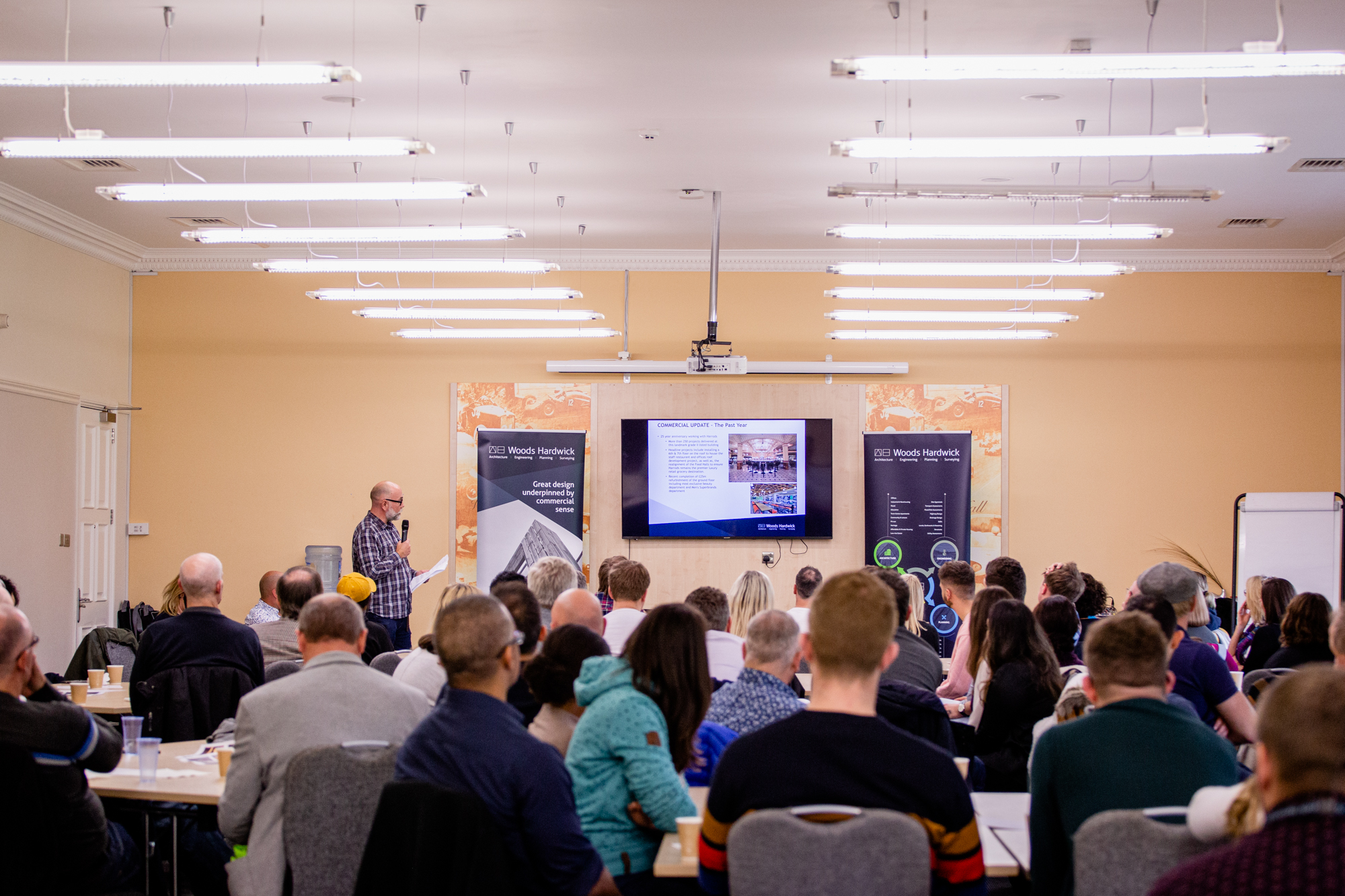
Meet RIBA Chartered Architect, Paul Wright
Paul Wright joined Woods Hardwick as an Associate in our Residential Architecture team in August 2021.
A RIBA Chartered Architect with experience working both in practice and for a residential developer, Paul shares more about his role and why a career in architecture is so rewarding.
How did you get into Architecture?
After leaving secondary school having passed all of my A-Levels I enrolled at the University of Westminster, studying there for three years and graduating with a BA (Hons) Architecture degree. This was my first real exposure to the subject area and studying in London gave me the opportunity to be surrounded by some of the best architecture around. I left university with a job offer at a Hertfordshire-based architectural practice and began to gain great exposure on a number of construction projects.
Initially I intended to complete my year-out placement here however, because I was enjoying the work on offer I stayed for a few more years before eventually leaving for another practice specialising in residential architecture. It was during my time here that I enrolled onto the RIBA Office-based examinations programme (RIBA Part II) at Oxford Brookes University. This was a distance-learning course meaning that I could remain in professional practice and further my education simultaneously. Following a successful three years on this challenging yet enjoyable course, I then enrolled onto the RIBA Part III Professional Practice in Architecture course at London Metropolitan University on a part-time basis. Here I completed my practice, management and law examinations and met the required practical job-running experience enabling me to graduate and qualify as an architect. Since qualifying I have worked both in practice and for a residential developer which has aided in gaining valuable project-running and industry experience.
Why did you want to become an architect?
Exposure to architecture started when my parents had an extension designed and built at our family home. I enjoyed looking at the architectural drawings and seeing the build progress over time. At a similar time, I was undertaking work experience within the Building & Planning department at Stevenage Borough Council.
The most enjoyable part of being an architect is seeing your sketches or design ideas transform into a building or public open space. I always try to positively improve the end users’ way of life through the spaces designed.
Architecture can also take you to some amazing places. I have been fortunate enough to visit places such New York, Toronto, Rome, Sydney and Berlin.
What type of projects do you get involved in?
I have tailored my career now to focus predominantly on residential architecture projects and have experience working on a number of high-rise urban schemes, through to low-level rural developments at feasibility, planning and technical stages. I have also had experience in other sectors including commercial, hotel, leisure, listed-building, office and retail.
What would you recommend to any budding architects? How do they make themselves stand out?
It cannot be denied that studying architecture is a lengthy process and requires commitment, not only in time but financial also. I was lucky enough to have a great support network around me from my wife, my family, employers and tutors. None of this should put anyone off working in such a wide-ranging industry and creative environment. The subject of architecture and the construction industry is so vast and opens itself up to many opportunities. So even if you commence your studies or work life in one field, it can easily be transferable to another.
Having a presentable portfolio will naturally make you stand out but if you show a willingness to learn, be passionate and fully immerse yourself in your day-today tasks then there won’t be much that holds you back. It cannot be underestimated the sense of achievement that one gets when finally qualifying as an architect making the whole journey worthwhile.



